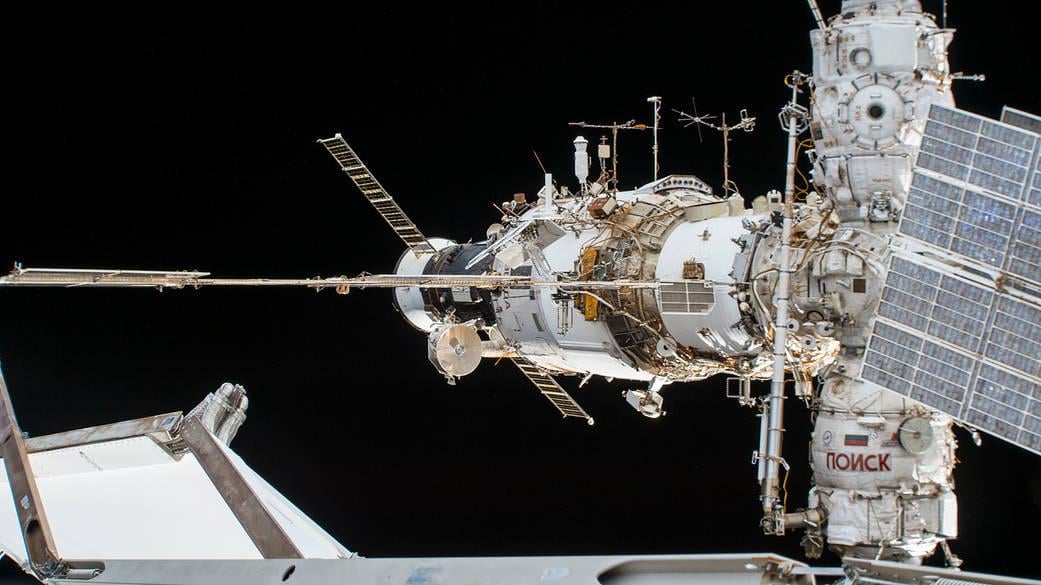Roscosmos CEO Repeats Threat to Withdraw from ISS

Roscosmos CEO Dmitry Rogozin has again threatened that Russia could withdraw from the International Space Station if Western countries don’t lift sanctions against Russian space companies.
On April 2 he wrote on social media that Roscosmos would soon pass specific proposals to the Russian government about when to complete cooperation on the International Space Station (ISS) with the space agencies of Canada, the European Union, Japan and the U.S.
Several Roscosmos subsidiaries have been sanctioned by the U.S. from 2020 to March 2022, including Soyuz 2 rocket manufacturer Progress; the TsNIIMASh Central Research Institute of Machine Building, which operates Russia’s ISS mission control center; Russian Space Systems; Titan Barrikady; Salavat Chemical Plant; and the Makeyev State Missile Center. The sanctions banned cooperation with these entities and blocked their access to Western technologies and financial and technical assistance. Canada, the EU, Japan and the UK joined these sanctions in March 2022 after Russia invaded Ukraine.
The Roscosmos CEO addressed the heads of the space agencies of Canada, the EU and the U.S. in mid-March, asking whether they could help to lift the sanctions. Rogozin showed replies from NASA and the Canadian Space Agency, which said that cooperation on the ISS would be exempted from sanctions. European Space Agency head Josef Aschbacher promised to forward Rogozin’s request to the agency’s member states.
“I think that the rebuilding of normal relations between the partners on the International Space Station and other joint projects is possible only with complete and unconditional lift of the illegal sanctions,” Rogozin explained.
Cooperation on the ISS is governed by an agreement between the governments of Canada, European Space Agency member states, Japan, Russia and the U.S., signed in 1998. The station’s operation is now approved until 2024. The Biden administration committed in January to extend operations to 2030; the Russian government has not made a decision yet.
Rogozin first threatened that Russia could withdraw from the ISS due to sanctions against Progress and TsNIIMASh in 2021, but NASA and Roscosmos returned to discussions about the station’s future later that year.
Russia has been a key partner of the ISS program from its beginning. Construction of the ISS Russian segment was completed in 2021 and now includes six modules. Russia’s Soyuz spacecraft were the only means of crew transport to the station from the space shuttle’s 2011 retirement until 2020, when the SpaceX Crew Dragon became operational.
Roscosmos plans to send the next crewed mission to the ISS aboard Soyuz MS-22 ship in September, supporting ISS Expedition 68. Four more Russian crews for Expeditions 69 through 72 have been approved and continue training now.
Russia also provides cargo and fuel supplies to the ISS aboard Progress capsules that are launched atop Soyuz 2 medium-lift rockets. Progress’ engines also are used to change the station’s altitude and orientation.




